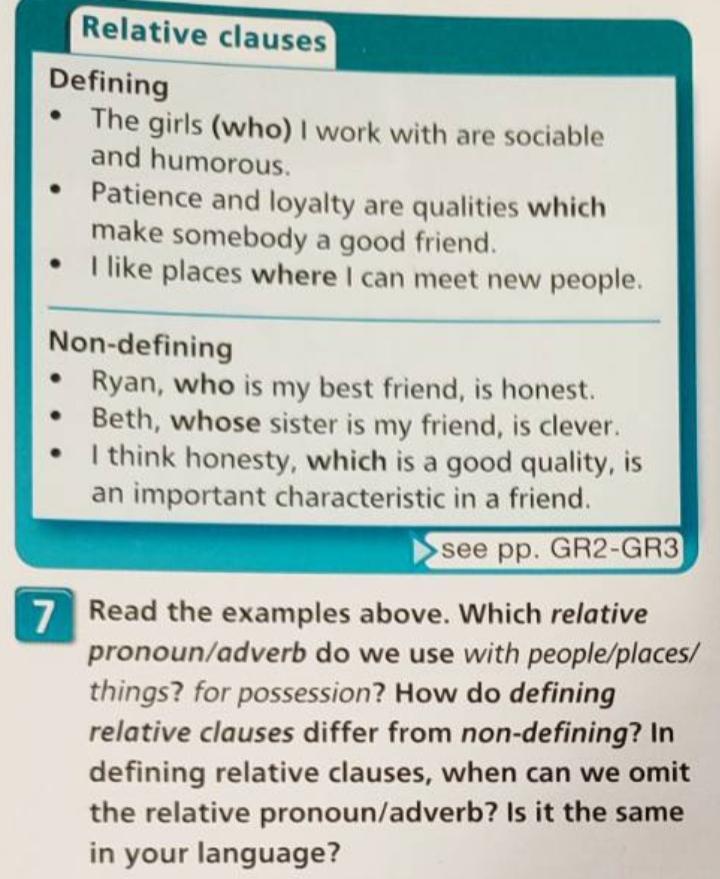Ответы
Ответ:
1. When referring to people, places, and things, we use "whose" as a relative pronoun for possession. For example, "The book whose cover is green is mine."
2. Defining relative clauses provide essential information needed to identify or understand the noun being referred to. They are usually introduced by the relative pronouns "who," "whom," "whose," "where," and "that" or the relative adverb "when." Non-defining relative clauses, on the other hand, provide additional but not essential information and are introduced by the pronouns "who," "whom," "whose," and "which" or the adverb "when." Non-defining clauses are set off by commas.
3. We can omit the relative pronoun/adverb in defining relative clauses when it is used as the object of the clause, and the verb follows it immediately. For example, "The book I read yesterday was good." Here, "that" can be omitted.
4. In Ukrainian, we also use "whose" as a relative pronoun for possession. Defining and non-defining relative clauses work the same way as in English.
